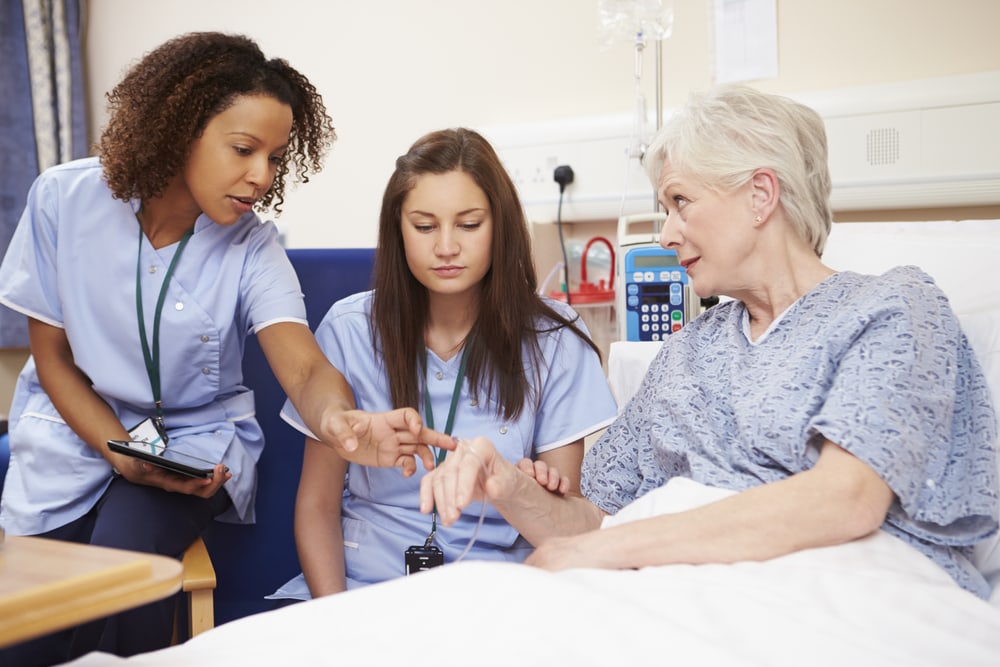A studious and driven student, Naomi Nunez has a passion for anatomy and physiology. Ever since she was first introduced to the subject in middle school, she has taken an instant liking to health science. She recalls studying the different parts of the brain and the structure of nerves, comparing how these systems work together to produce different functions like a puzzle. She says she vividly remembers this moment, the moment when she realized this would be the path she would take towards her future career.
Fast forward a few years, today Naomi attends Littleton High School where she enjoys taking accelerated courses and participating in extra-curricular activities. She looks back on an opportunity that was presented to her by one of her teachers to share her experience with VLACS. One of forty students that were selected during a competitive application process, Naomi landed a paid summer internship at Dartmouth-Hitchcock Medical Center.
To apply her passion for neuroscience, Naomi requested to be placed in the neurology department at DHMC, where she worked four to five-day workweeks throughout the six-week internship. Her daily tasks varied; one day she might shadow residents and doctors in the hospital, another day might entail promoting stroke education with hospital personnel.
Initially, she explained, it was a big transition, but her experience allowed her to witness the realities of working in a hospital setting. “Sometimes we would visit patients who were having strokes at the very moment as we were arriving,” Naomi recalls.
By collaborating with other doctors and nurses, this internship also allowed Naomi to gain the confidence to work in a hospital. “Seeing that collaboration actually helped me to be more empathetic and sympathetic towards people and to value other people’s opinions,” she added.
Naomi attributes the internship to her intensified desire to enter this realm. Along with getting paid for her experience she also earned a course credit in Psychology through VLACS. After high school, Naomi plans on joining the military to pursue a medical career through the armed forces.
Bringing These Opportunities to Life
To make this experience possible for students like Naomi, DHMC has a workforce development team that helps organize youth engagement programs. These programs include internships, as well as experiential days that allow students to follow generalized case studies at the hospital to witness the different teams and careers that come together to care for patients.
Outside of the hospital, DHMC orchestrates a professional presenter series where individuals from the hospital visit local schools to collaborate with students who are interested in healthcare but might not be able to participate in activities at the hospital.
Tracie Ruggles, a member of the workforce development team and nurse educator, says the goal of providing these experiences to students is to educate them about the different possibilities that are available in healthcare. Her team is responsible for reaching out to regional youth to spark their interest and expose them to careers in the healthcare field.
“We see students come to us with an idea of what career they think they might like to do in healthcare. Sometimes that thought about wanting to do a particular career of interest is based on a television show they are watching or information they’ve heard from family members that are in that career. When they come to the hospital or when they come to some of our activities and they are actually exposed to the career that they thought they were interested in they might find that it is something completely different than what they had envisioned, or sometimes we find that we even spark an interest in a different career they didn’t even know existed,” Tracie said.
Providing these hands-on experiences prepares students to work in healthcare by allowing them to understand the environment, communication, and skills required to work in this industry. Making these programs available helps students navigate how they can enter the healthcare arena.
Would You Like to Explore A Career in Healthcare?
The good news about the healthcare industry is that these jobs aren’t going anywhere. In fact, the Bureau of Labor Statistics reports, jobs in healthcare are expected to grow more than any other industry, adding nearly 1.9 million new jobs within the next decade.
There are a number of careers that students from all educational backgrounds can pursue in healthcare. Explore the many career paths that are available to graduates!
High School Diploma or Equivalent – Home Health Aide, Personal Care Aide, Opticians, Pharmacy Technicians.
Postsecondary nondegree – Dental Assistant, EMT, and Paramedic, Licensed Practical Nurse, Licensed Vocational Nurse, Medical Assistant, Medical Transcriptionist, Medical Records and Health Information Technicians, Phlebotomist, Surgical Technologist.
Associates Degree – Dental Hygienist, Nuclear Medicine Technologist, Radiation Therapist, Radiologic and MRI Technologist, Respiratory Therapist.
Bachelor’s Degree – Athletic trainer, Laboratory Technician, Dietitian, Registered Nurse.
Master’s Degree – Genetic Counselor, Nurse Practitioner, Nurse Midwives, Occupational Therapist, Physician Assistant, Speech-Language Pathologist.
Doctoral or Professional Degree – Audiologist, Chiropractor, Dentist, Pharmacist, Physician, Surgeon, Physical Therapist.
Discover the Health Sciences with VLACS
VLACS offers a range of health science courses that students can take to introduce themselves to different careers within the healthcare sector. Students can enroll in courses today and begin learning about different career paths in health science, while receiving course credit, earning badges, and gaining real-world experience!
Visit the Learning Catalog to find your next health science course!
